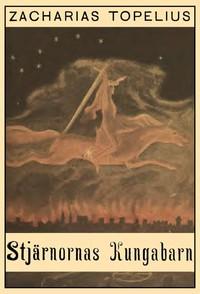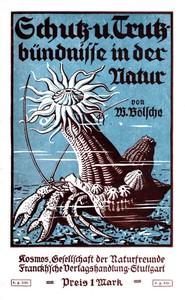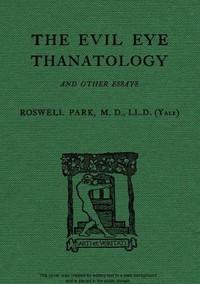Read this ebook for free! No credit card needed, absolutely nothing to pay.
Words: 145848 in 22 pages
This is an ebook sharing website. You can read the uploaded ebooks for free here. No credit cards needed, nothing to pay. If you want to own a digital copy of the ebook, or want to read offline with your favorite ebook-reader, then you can choose to buy and download the ebook.
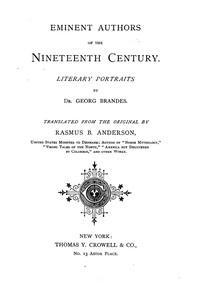

: Eminent Authors of the Nineteenth Century: Literary Portraits by Brandes Georg Anderson Rasmus Bj Rn Translator - Literature Modern 19th century History and criticism
PAUL HEYSE HANS CHRISTIAN ANDERSEN JOHN STUART MILL ERNEST RENAN ESAIAS TEGN?R GUSTAVE FLAUBERT FREDERIK PALUDAN-M?LLER BJ?RNSTJERNE BJ?RNSON HENRIK IBSEN
PAUL HEYSE.
"How does it happen," I asked recently of a distinguished portrait-painter, "that you, who formerly have made successful efforts in several other branches of art, have at last confined yourself wholly to portrait-painting?"
"I think it is because it has given me the most pleasure," replied he, "to study and to perpetuate an object which has never existed before, and will never appear again."
Whoever casts a glance on the long row of closely printed volumes which form Paul Heyse's complete works, and remembers that the author was born in the year 1830, will first of all be apt to exclaim, "What industry!" Involuntarily he will trace back this astonishing productiveness to a will power of rare endurance. None the less, however, does it owe its origin to a singularly fortunate nature. This nature possessed within itself so luxuriant a fruitfulness that it has yielded its harvest without the least effort of the will, without any undue exertion; it has yielded a harvest of such variety that we might believe it to be fostered according to a defined plan and with a painstaking will; nevertheless, it has obviously been permitted to act with thorough independence. To allow nature to rule, to follow one's own pleasure or bent , has been from the outset, as we soon come to feel, Heyse's motto, and so it happens that with qualities which usually lead to a wandering, scanty, fragmentary productiveness, he has completed and perfected each undertaking, having written lyric and epic poems, one grand epos , a dozen dramas, more than fifty "novellen," and two large romances. He began early; while yet a student, he entered on his literary career. Free from care as a pedestrian tourist who gayly whistles as he strolls along, never hurrying, pausing to drink at every spring, lingering before the bushes by the wayside, and plucking flowers as well as berries, resting in the shade, and wandering along in the shade, he has gradually trodden a pathway of such extent that we could only expect to see it traversed by one who maintained a breathless march, with eyes fixed unwaveringly on the goal.
The voice followed by Heyse as an author is unquestionably the voice of instinct. North German though he is, nothing is farther removed from him than cool deliberation and premeditation. Born in Berlin, he nevertheless takes root in Munich, and finds in the ardent South German race and in the throbbing South German life the surroundings most congenial to his temperament; at home in South Germany, he yet feels constantly drawn to Italy, as the land where the human plant has attained a more beautiful and luxuriant growth than elsewhere, one that is less disturbed by reflex action, and where the voice of the blood speaks most distinctly, most powerfully. This voice is the siren voice which allures Heyse. Nature! Nature! keeps ringing in his ear. Germany has authors who appear almost wholly devoid of inspiration, and who have only been made what they are by a vigorous North German will ; others whose works bear the impress of an active North German intellect. Neither through volition nor deliberation does Heyse create and fashion his works, but simply by heeding the inner impulse.
The power which an individual obeys as an artist, necessarily becomes the power which in his works is exalted to the place of honor. That is the reason why Heyse as an author glorifies nature. Not what a human being thinks or desires, but what he is by nature interests Heyse in him. The highest duty in his eyes is to honor nature and heed her voice. Sin against nature is the true sin. Give her free scope, and let her act her own pleasure.
There are, therefore, not many authors who are such marked fatalists as Heyse. In free will, according to the traditional sense of the word, he does not believe, and is evidently quite as sceptically opposed to Kant's categorical imperative as his Edwin or his Felix. But if he does not believe in innate ideas, he does believe in innate instinct, and this instinct is sacred to him. In his "novellen" he has described how unhappy the soul feels when this instinct is either disturbed or rendered uncertain. In his "Kenne Dich Selbst" it is intelligence, in his "Reise nach dem Gl?ck" it is morality that is the disturber of the peace.
In the first of these "novellen" Heyse has represented the anguish which proceeds from a too early or a premeditated invasion on the instinctive life of the soul. "That beautiful stupor of youth, that dreamy, unconscious plenitude of the powers, the pure faculty of enjoyment of the yet unexhausted senses, was lost to young Franz through his premature struggle for self-consciousness." He here portrays the sleeplessness of the mind, which is as dangerous for the health of the soul as actual sleeplessness is for the welfare of the body, and shows how one in whom the reflex faculty is maimed "loses that mysterious, obscure substance which is the very pith and marrow of our personality."
In "Die Reise nach dem Gl?ck" it is conventional morality, which by supplanting instinct has shattered the soul. A young girl, having conquered her own natural impulses from motives of inculcated morality, has banished her lover from her presence late at night, and thereby become the innocent cause of his death. The remembrance of this misfortune haunts her constantly. "If one's own heart does not point out the way, one is sure to go astray. Once before in my life I was made wretched because I refused to hearken to my heart, let it cry as loudly as it would. Now I will pay heed if it but whispers to me, and I will have ear for nothing else."
In instinct the entire nature is present. Now if the inner devastation which results where instinct has lost its guiding power, be in Heyse's eyes the most profound of all misfortunes, to the characters he delights most in delineating, the consciousness of life presents the exact opposite; that is, the most profound sense of happiness in the enjoyment of the totality and harmony of their natures. Heyse, as a matter of course, is far removed from considering self-introspection as a principle inimical to the healthy sense of life. His own views appear to be about the same as those expressed by the invalid in "Kenne Dich Selbst" in the words: just as agreeable as it may be for him to awaken in the night, to consider and to know that he is able to sleep still longer, just so glorious it appears to him to arouse from his dreamy state of happiness, to collect his thoughts, to reflect, and then, as it were, to turn over on the other side and indulge in further enjoyment. At all events, in his romance "Kinder der Welt" , he has permitted Balder, the most ideally fashioned character in the book, to carry out this last thought in a still more significant way. Melancholy views have just been expressed, speculations regarding the sun which shines indifferently on the just and on the unjust, and looks down upon more wretchedness than happiness, and about the infinite, ever-recurring miseries of life, and more to like effect. Franzel, the young socialist printer, has been expatiating upon the opinion that one who had truly considered the lot of humanity, could never find rest or peace, and in his distress has called life a lie when Balder attempts to show him that a life in which repose was possible, would no longer deserve the name. And then Balder explains to Franzel in what the enjoyment of life for him consists; namely, in "experiencing past and future in one." With the utmost originality he declares that he could have no enjoyment if his experiences were incomplete, and that in his silent moments of contemplation all the scattered elements of his being were united in one harmonious whole. "Whenever I have wished to do so, that is to say, as often as I have desired to make for myself a genuine holiday of life and to enjoy to the utmost my little existence, I have, as it were, conjured up all the periods of my life at once: my laughing, sportive childhood, when I was yet strong and well, then the first glow of thought and feeling, the first pangs of youth, the foreboding of what a full, healthy, mature life must be, and at the same time the renunciation which usually becomes a habit only to very old people." To such a conception of life, human existence is not divided into moments, which vanish, leaving us to bemoan their disappearance, nor is it broken into fragments in the service of reciprocally contending impulses and thoughts; to one who possesses the faculty of casting out an anchor at any moment, of realizing the totality and reality of one's own being, life cannot lacerate like a bad dream. "Do you not think," says Balder, "that he who can generate within himself at any moment, if he but choose, such a fulness of the sense of existence, must consider it empty talk when people say, it were better never to have been born?" It must be remembered that it is a cripple whose days are numbered, who utters these words; and a cripple, moreover, whom the poet has evidently modelled after the image of the so differently thinking Leopardi. The peculiar kind of epicurean philosophy expressed by them, and which, through a synthetic reflection, gathers together all time in the eternal present, is in reality the poet's conclusive conception of life. It is the hearkening of harmoniously planned nature to her own harmonies. The infinite gods make all their gifts to their favorites complete, all the infinite joys and all the infinite sorrows. This life-philosophy admits into its inner harmony even the discord of infinite pain, and succeeds in finding for it a satisfactory solution. Here is the point wherein Heyse most sharply differs from Turgenief and the other great modern pessimists of poetry. He makes bold to impute to his favorite characters even the most unlovely and shocking errors, in order that he may restore to them, after divers trials and afflictions, their inner peace. The young baron in the romance, "Im Paradiese" , is an instance of this. A sin against his better self weighs upon his conscience. He has lost that inner harmony with his own emotional nature, "on which everything depends." It becomes manifest in the course of the book that through this failing, he has, besides, transgressed against his best friend. Nevertheless, through all the mistakes and misfortunes, which are the inevitable result, he finds himself again. The harmony of nature was but temporarily set aside; not, as he had feared, hopelessly destroyed.
Thus with Heyse, even he whose life has been the most aggravating failure, takes his refuge in the conception of nature as the last consoling thought; and thus he himself, in the most painful moments of his life, takes refuge therein, and to this the marvellous poems "Marianne" and "Ernst," the most profound and most touching of all his writings, have remained as witnesses. Nature is his starting-point and his final goal, the source of his poetry and its last word, his one and all, his consolation, his creed.
Free books android app tbrJar TBR JAR Read Free books online gutenberg
More posts by @FreeBooks

: Der Eroberer Eine poetische Phantasie in fünf Kaprizzen. Aus alten Urkunden mit neuen Anmerkungen by Weidmann Paul - Parodies; Austrian literature
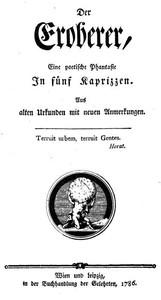

: Stjärnornas kungabarn 2: De tre En tids- och karaktersstudie från drottning Kristinas dagar by Topelius Zacharias - Historical fiction
